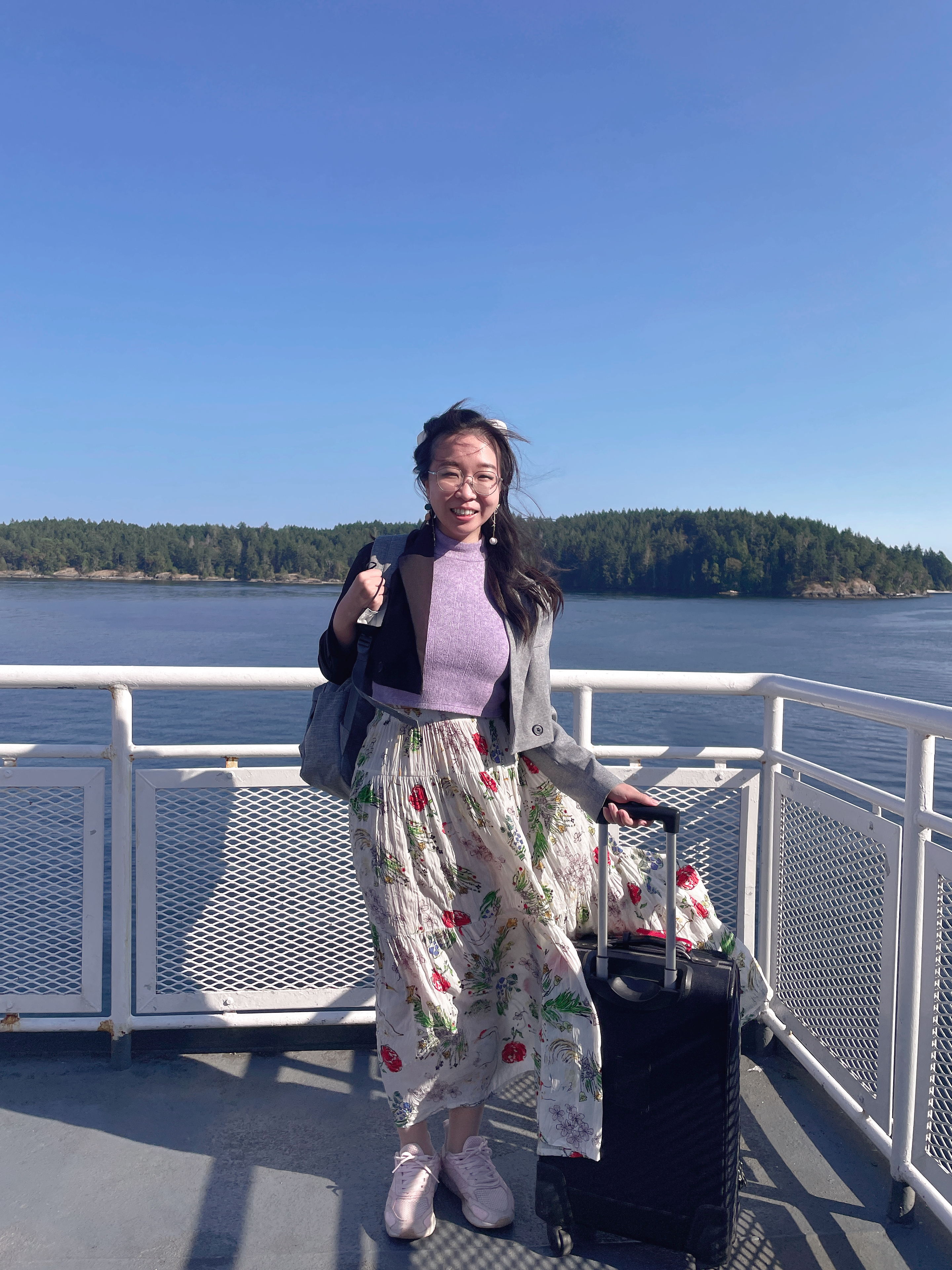Student-turned-teacher looks forward to collaborations, teaching and learning opportunities ahead
26 August 2024

The Faculty of Rehabilitation Medicine will begin 2025 by welcoming Dr. Youran Lin to the role of assistant professor in the Department of Communication Sciences and Disorders. A recent graduate of the department’s combined MSc/PhD program — which she began as the lone international student in the program — Lin has gained important perspectives from her work with the Bilingual Acquisition Lab as a postdoctoral fellow.
Drawn to the field by the potential speech therapy has to improve people’s lives, she’s researching both children’s language skills in multilingual settings as well as the experiences of speech-language pathologists in training who, like her, have diverse cultural and linguistic backgrounds.
The author of numerous publications and the faculty’s first Vanier Scholar, Lin spoke to us about her decision to pursue a career in speech-language pathology, her desire to help multilingual families and other SLPs, and her efforts to build awareness of communication sciences and disorders around the world.
What first inspired you to enter the field of rehabilitation medicine?
I studied linguistics in Beijing, China for seven years, always wondering how I could use my knowledge to help people. I heard about rehabilitation medicine and speech-language pathology a year before I decided to join the field. In China at the time, speech-language pathology wasn’t as well known as it is in Canada. I was fascinated by how it was able to translate knowledge into practice and improve people’s quality of life.
Can you explain your area of research?
I have two major areas of interest. Firstly, I work with understanding the roles of individual-difference factors in bilingual children’s speech development, including their language environment and history, cultural identity and motivation. Secondly, I plan to collaborate with prospective SLPs with diverse cultural and linguistic backgrounds to understand their experiences and perspectives of training and working in a globalized context.
Why did you choose these research topics?
My interest in bilingual speech development stems from my passion for speech, bilingualism and bilingual education. During my doctoral studies, I investigated the speech development of children enrolled in Mandarin-English bilingual education programs and I became particularly curious about the role of explicit speech instruction. My postdoctoral studies investigated the multidirectional relationships between individual-difference factors and bilingual development. I’ll continue to investigate how bilingual children’s speech is influenced by these complex factors.
My focus on the diversity of the SLP workforce is motivated by my own experiences: I underwent a major shift in my identity from being a newcomer and new English speaker to a multilingual SLP with powerful resources.
How do you hope your research will benefit people?
My work aims to help bilingual children develop functional bilingualism, whether maintaining their heritage language(s) or learning a second language. This means helping language teachers better support their students’ speech learning and providing resources for immigrant families so parents/caregivers feel comfortable and confident supporting their children’s multilingual development.
I also want to help new/prospective SLPs from similar backgrounds recognize their strengths and promote inclusivity in the field of SLP and rehabilitation medicine.
What drew you to the University of Alberta?
I was a U of A exchange student in 2016 before starting my program in 2018. I received tremendous support from the professors and staff and enjoyed learning alongside multiple cohorts. I believe this is the ideal place to carry out my research programs for the faculty’s commitment to diversity. I can’t wait to contribute to this place that has nurtured my personal and career development!
What are you most excited about in your new role?
The people! I’m excited to collaborate with the researchers, educators and clinicians. I can’t wait to continue my teaching and learning journey with the talented and motivated students.
Which classes will you be teaching?
I’ll teach INT D 508 - Interprofessional Health Education Elective in the winter 2025 term, which I enjoyed teaching in winter 2023. Before that, I’ll contribute a guest lecture on computer-aided speech transcription for CSD 507 - Phonological Disorders in fall 2024. I will also supervise CSD 900 - Directed Research Projects.
What’s the No. 1 piece of advice you give your students?
Communicate! Share your knowledge and understanding, so your peers benefit from group learning and your instructor knows where you stand. Reflect on what you need and never be afraid to ask for help. Communication is a two-way street, so it also means to actively listen to others and try to understand why this content is important.
Can you tell us something others would be surprised to learn about you?
I host a Chinese video channel in conjunction with Ms. Lujia Yang to raise awareness of communication sciences and disorders among Chinese-speaking populations in China and around the world. I enjoy cooking, crocheting and singing. Currently, I’m learning to dance.